24+ Goals and Objectives Examples to Download
Goals and objectives serve as essential components in personal and professional development. Whether you are an individual striving for personal growth or a business aiming for success, setting clear goals and objectives is crucial. In this article, we will explore what goals and objectives are, provide a step-by-step guide on how to set them effectively, address frequently asked questions, and conclude with insights on their importance.
1. Establishing Goals and Objectives
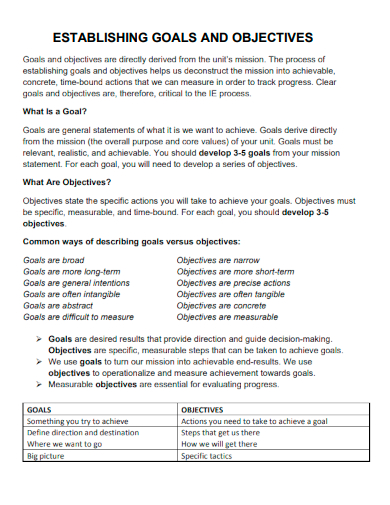
elpaso.ttuhsc.edu
2. Goals & Objectives Activities Examples
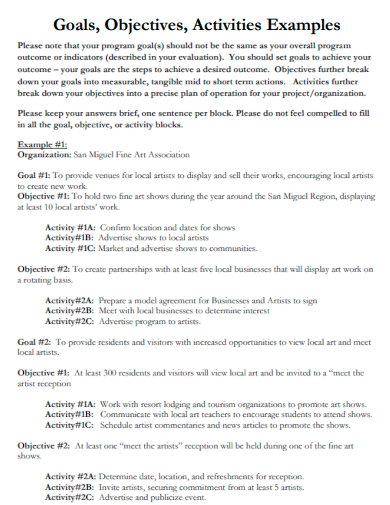
telluridefoundation.org
3. Tips for Writing Goals and Objectives

samhsa.gov
4. Basic Goals and Objectives
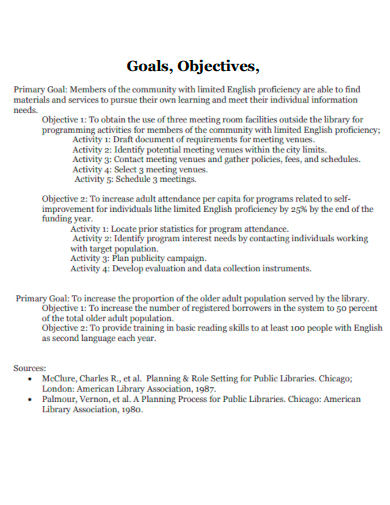
winnefox.org
5. Measurable Goals and Objectives

tntech.edu
6. Goals and Objectives in Students

sharpschool.com
7. Developing Program Goals and Objectives
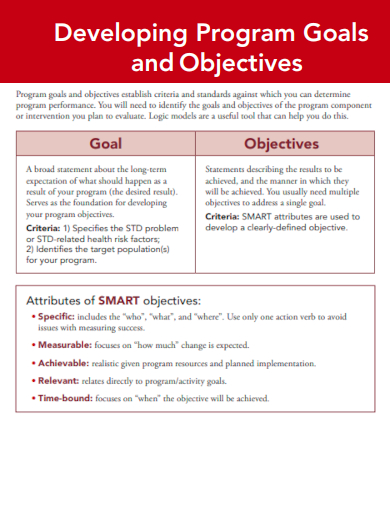
cdc.gov
8. Goals and Objectives for Grant Proposals
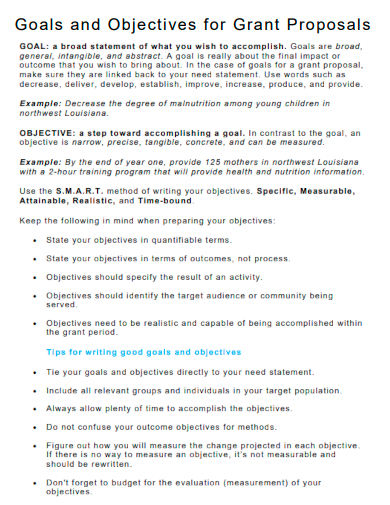
unitedmidcoastcharities.org
9. Formal Goals and Objectives
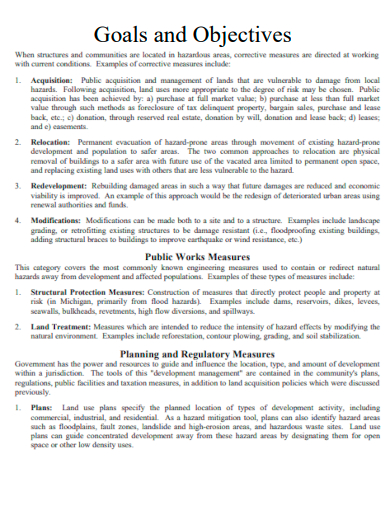
michigan.gov
10. Nature of Goals and Objectives
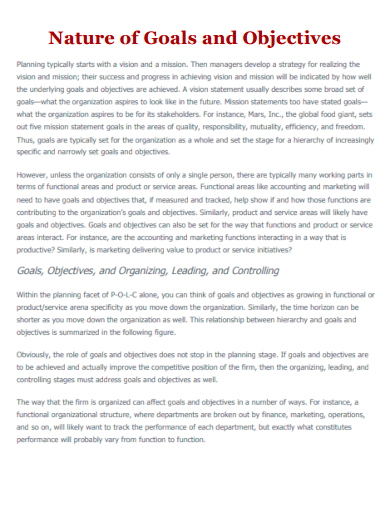
resources.saylor.org
11. Printable Goals and Objectives
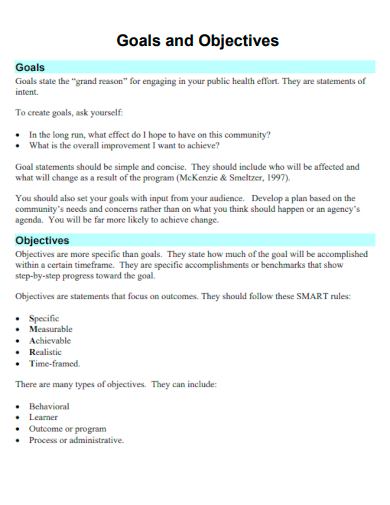
cancercontrol.gov
12. Goals and Objectives Module

nhtsa.gov
13. Goals Objectives and Policy Actions
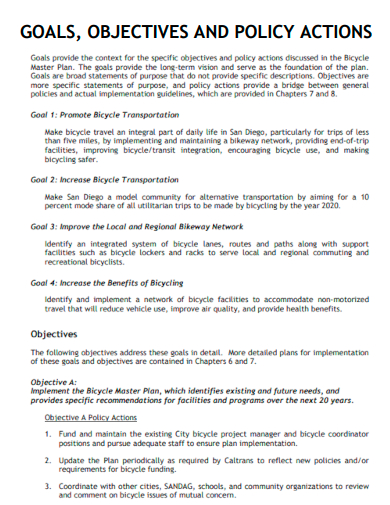
sandiego.gov
14. Sample Goals and Objectives
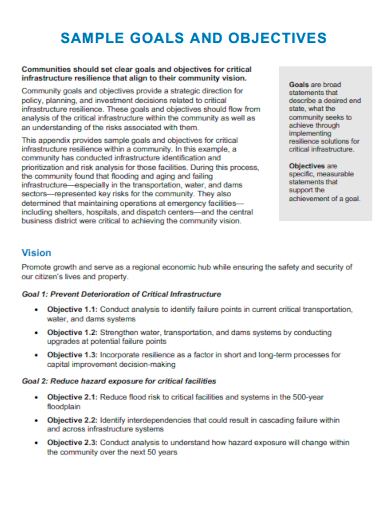
cisa.gov
15. Guidance for Goals Objectives and Activities
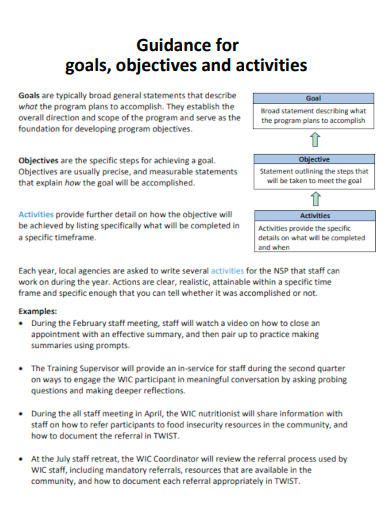
oregon.gov
16. Syllabus Goals vs. Objectives
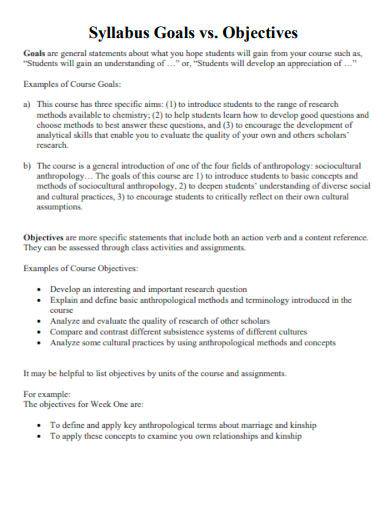
uiowa.edu
17. Learning Goals and Objectives Agreement
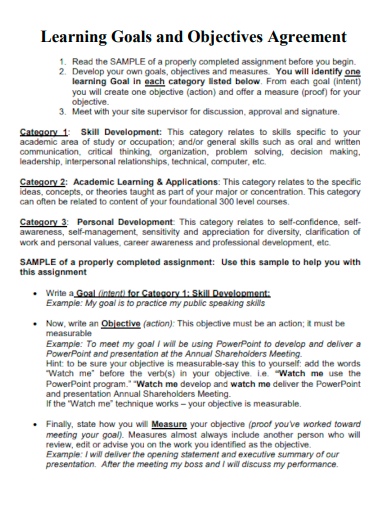
salisbury.edu
18. Modern Goals and Objectives
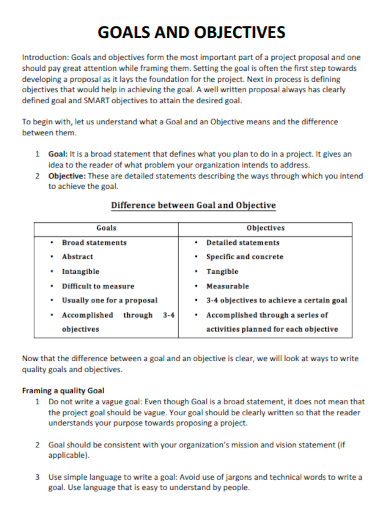
sdfoundation.org
19. Goals and Objectives in a Forest Management Plan

bugwoodcloud.org
20. Programs Goals & Objectives

cal.org
21. Guidelines for Setting Goals and Objectives

wellesley.edu
22. Student Services Goals and Objectives

craftonhills.edu
23. Project Goals and Objectives
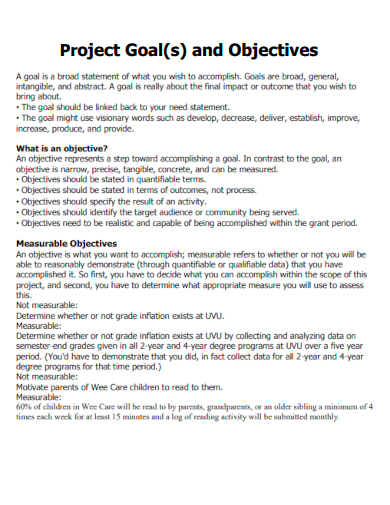
utahtech.edu
24. Adopted Goals and Objectives
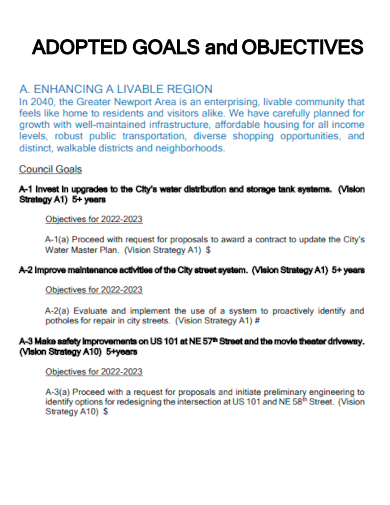
newportoregon.gov
25. Department of Administration Goals and Objectives
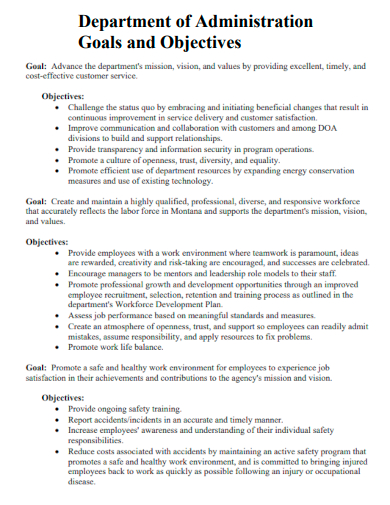
leg.mt.gov
What are Goals and Objectives?
Goals and objectives are distinct but interconnected concepts. Goals are broad statements that define what you want to achieve in the long term. They provide a sense of direction and purpose, encompassing aspirations such as personal growth, career advancement, or organizational success. Objectives, on the other hand, are specific, measurable, and time-bound targets that contribute to achieving the overall goals. They are concrete steps that outline the actions necessary to fulfill the broader goals.
How to Set Your Goals and Objectives
Setting goals and objectives requires a structured approach to ensure clarity and effectiveness. Here is a step-by-step guide to help you establish your goals and objectives:
Step 1: Self-reflection
Begin by reflecting on your aspirations, values, strengths, and weaknesses. Understand your motivations and what you genuinely want to achieve.
Step 2: Define your goals
Use the SMART framework (Specific, Measurable, Achievable, Relevant, Time-bound) to formulate clear and concise goals. Consider your long-term goals, such as career aspirations or personal milestones.
Step 3: Break goals into objectives
Break down each goal into smaller, actionable objectives. These objectives should be specific, measurable, achievable, relevant, and time-bound, aligning with the corresponding goal.
Step 4: Track progress
Monitor your progress regularly, adjusting objectives as needed. Celebrate achievements along the way, and reassess and modify goals as circumstances change.
FAQs
What are examples of corporate goals?
Corporate goals vary depending on the organization’s mission, industry, and strategic priorities. Examples may include increasing market share, expanding into new markets, enhancing customer satisfaction, or improving operational efficiency.
Can you provide examples of team goals?
Team goals are often collaborative objectives that contribute to the overall success of a group or project. Examples include fostering effective communication within the team, increasing productivity, achieving project milestones, or enhancing teamwork and collaboration.
What are business objectives, and why are they important in business planning?
Business objectives are specific targets that organizations set to accomplish strategic initiatives and drive growth. These objectives may focus on financial performance, customer satisfaction, employee development, innovation, or market expansion. They are crucial in business planning as they provide a roadmap for action, align teams, and measure success.
Setting clear goals and objectives is essential for personal and professional growth. By understanding the distinction between goals and objectives and following a structured approach to define and pursue them, individuals and businesses can chart their path to success. Whether you aim for long-term achievements or short-term milestones, goals and objectives provide the framework for progress, enabling you to realize your full potential.


